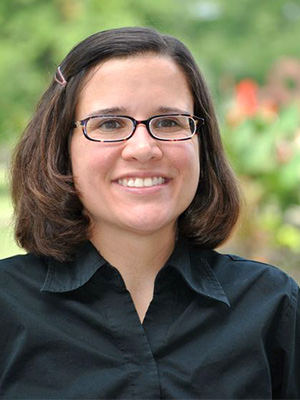
Jill Channing, PhD, Dean of Liberal Arts, TMCC
Jill Channing Published for Works on Leadership, Innovation
Jill Channing, PhD, is Dean of Liberal Arts at Truckee Meadows Community College, and a big believer that leaders in higher education can inspire innovation at their schools.
Community college students will have to constantly be more resilient when they go out into the working world that is changing more rapidly than ever before—and Channing is enthusiastic to write about creating and accepting change, and rewarding innovation.
Her work has been included in the League for Innovation in the Community College publication, Leadership Abstracts. Channing’s article “That’s How We’ve Always Done It: Creating Innovative Change in Community Colleges,” appears in Volume 29, Number 7.
Four important steps to take when thinking about positive change are: determining if your college community is ready to try something new, making many small changes instead of big and sudden changes, accepting and embracing resistance, and encouraging change by staff members across departments, not necessarily from the top down.
“Think about people who work well together and have credibility within the institution, whom others will respect and follow their lead,” she said in an AACC article by Emily Rogan about Channing’s work. “Support those people and give them authority to make decisions. Guide and direct them, but let other people lead to a large extent.”
Her article “The Benefits of Generative Leadership in Community Colleges,” is posted on the Higher Learning Commission, Annual Conference, Collection of Papers 2016. Generative leadership is a management style where emphasis is placed on the collective intelligence of many different voices in a team or organization, tapping into that energy and coming up with new and unique possibilities.
“This leader puts into action collaborative decision-making and idea-generating models, recognizing that every individual is an integral element to the living system,” she wrote in the article.
Her advice is to question the way things have always been done, even when opposition comes from others in the organization who may benefit from the status quo or are reluctant about change.
The Community College Journal of Research and Practice has published one of Channing’s recent articles in Volume 40: “Faculty Evaluations: Contentious Bothers or Important Tools for Faculty Growth?”
In this work, she examines the different perceptions of college faculty performance reviews by professors and administrators and offers ideas for improving evaluations. The end result should be to encourage faculty to continually refine teaching methods, persistently study new topics, and thoughtfully seek to serve their college communities in new ways.
A new article, “Complaining and Blaming: High Conflict Behavior Patterns in the Community College,” will be published in July. More information about Channing’s recent written pieces can be found by contacting the Liberal Arts Division at 775-673-7256.
Scott Miller Is Passionate About Contributing Work in Behavioral Science
Scott A. Miller has been teaching psychology at TMCC for two years. He writes scholarly articles on topics in behavioral science in order to contribute both scientific knowledge and to benefit social causes.
“I’m motivated to make meaningful contributions to the comprehensive science of behavior because it’s a field that has been valuable and effective at helping increase the quality of life of other people, especially those who cannot advocate for themselves, for example those with intellectual disabilities,” he said. “Or more succinctly, I love the scientific and humanitarian nature of behavior psychology.”
His June 2016 article for the Journal of Applied Behavior Analysis is “Multiple schedules in practical application: Research trends and implications for future investigation.”
“Multiple schedules” are organized ways of providing positive reinforcement, or rewards, in order to help people learn or develop positive behaviors. His article covered a review of the current research on how people with intellectual disabilities or autism understand when certain rules are in place, or when rewards are available.
“Do mirrors facilitate acquisition of motor imitation in children diagnosed with autism?” was another article that Miller wrote for the Journal of Applied Behavior Analysis.
“This was a preliminary case study in teaching imitation to a child diagnosed with autism spectrum disorder (ASD),” he said.
It assessed the effectiveness of using a mirror to teach imitation to a child who did not initially demonstrate imitation, which is a foundational skill for further learning.
“The child successfully acquired imitation in the presence of the mirror,” he said.
“A Behavioral Interpretation of Situation Awareness: Prospects for Organizational Behavior Management,” is an article he co-authored with Kenneth Killingsworth and Mark Alavosius in October for the Journal of Organizational Behavior Management.
“Situation awareness is a concept in cognitive industrial organizational psychology used to understand decision-making in high-risk situations, and use this information to train people to be good decision makers,” he said. “This paper was an interpretation of ‘situation awareness.’”
Miller hopes that the work will help further collaboration and future lines of research on best practices in the disciplines of psychology and employment.
For more information about the Accomplished Authors and Presenters series, please contact Marketing and Communications at 775-673-7087.






